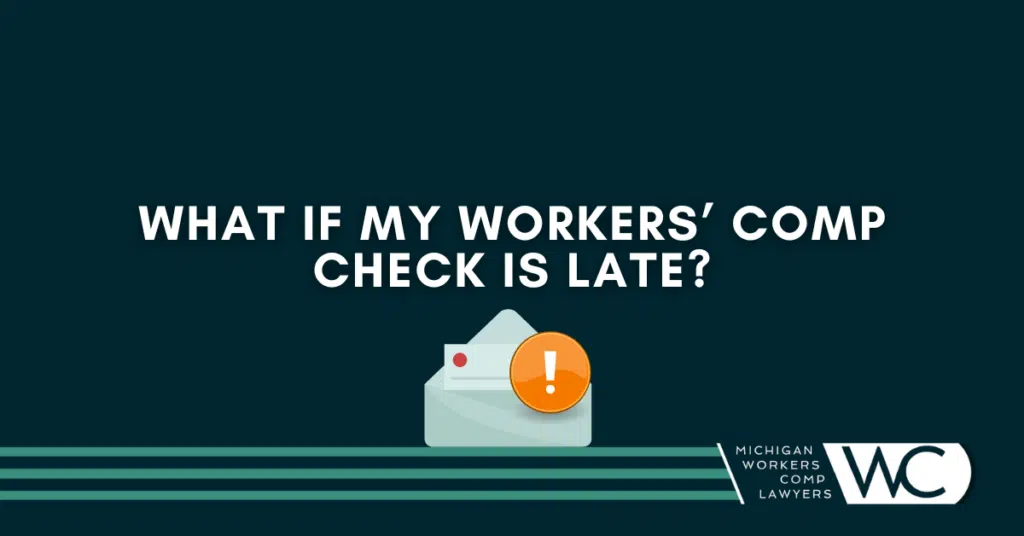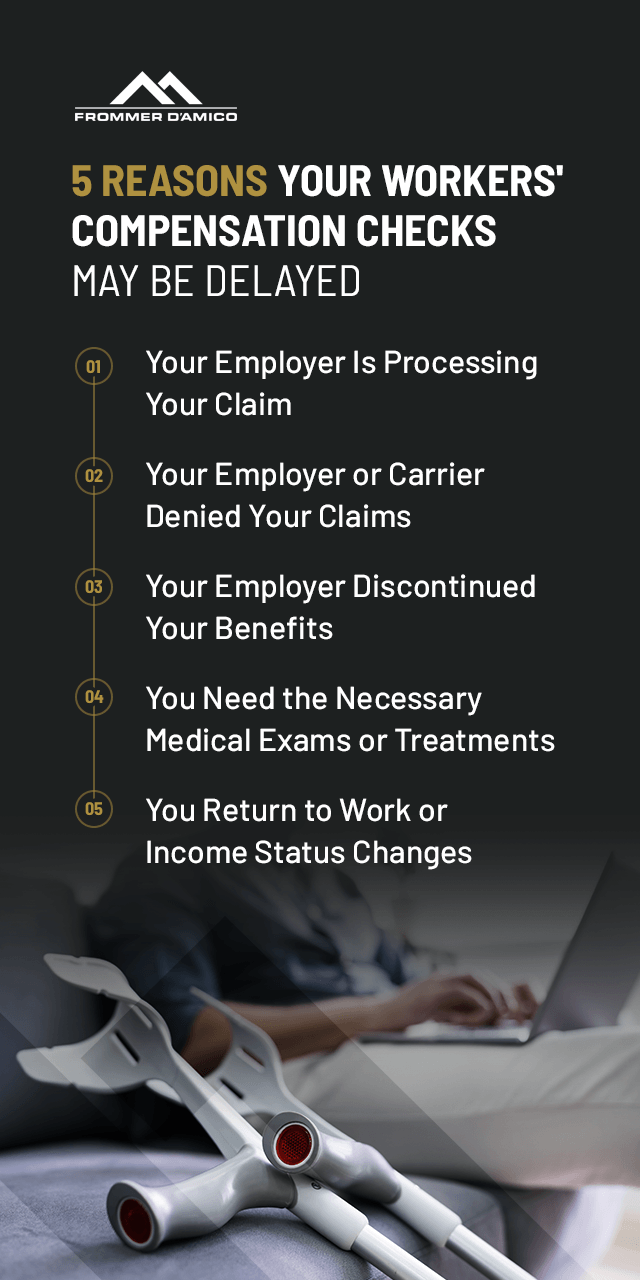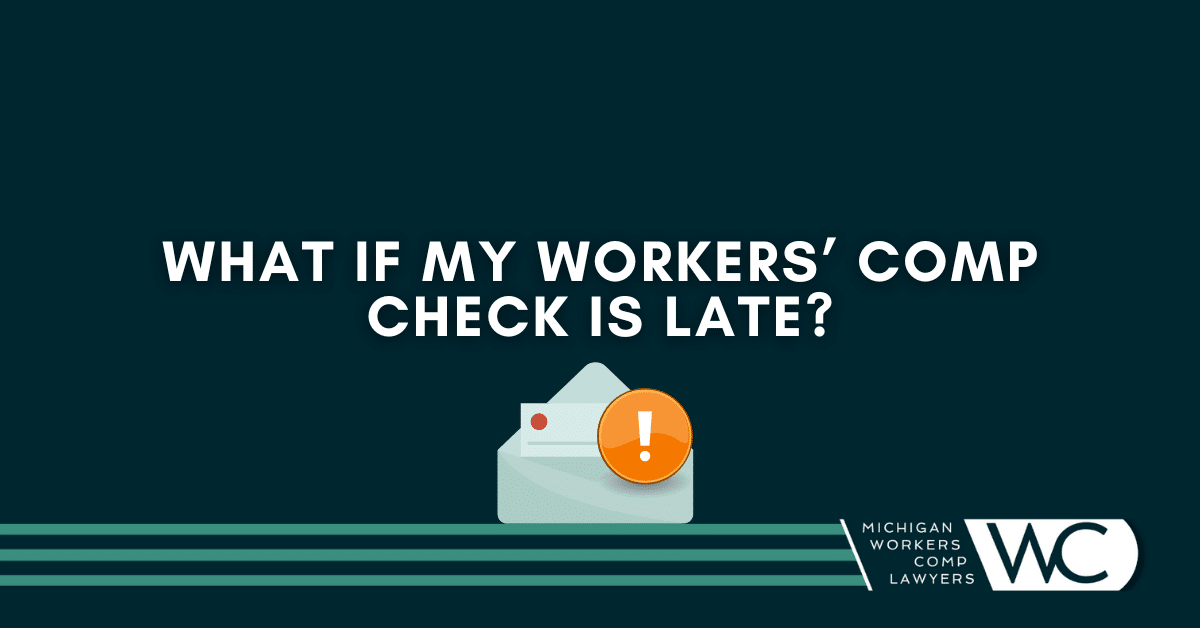Are you anxiously waiting for your workers’ comp payment, only to find that it’s late? You’re not alone.
Many people face this frustrating situation, wondering why their financial support is delayed. Waiting for a payment you desperately need can be stressful and overwhelming. You start questioning what went wrong and what steps you need to take to resolve the issue.
This article is here to help you understand why your workers’ comp payment might be late, providing insights and solutions to ease your mind. By the time you finish reading, you’ll have a clearer picture of the common reasons behind delays and how to effectively address them. So, let’s get to the bottom of it and put your concerns to rest.

Common Causes Of Payment Delays
Administrative errors can cause payment delays. Sometimes, wrong information is entered. This can slow down the process. Fixing errors takes time.
Payment can be delayed due to missing documents. All required papers must be complete. Missing forms cause extra checks. This makes payments late.
There can be many cases to handle. This leads to processing backlogs. Workers are busy with too many tasks. This can slow down payments.
Role Of Insurance Companies
Insurance companies have strict claim review processes. They check every detail. A tiny mistake can cause delays. They want to avoid paying the wrong amount. Each claim goes through many steps. Sometimes, reviews take weeks or months. Patience is needed during this time.
Communication gaps can lead to late payments. Sometimes, the company misses important information. Messages may not reach the right person. This can slow down the process. Always check that your contact details are correct. Follow up regularly to stay informed.
Policy changes can affect your payment. Companies often change rules without notice. New rules can confuse claimants. This leads to mistakes and delays. Always stay updated on your policy. Ask questions if unsure about changes.
Impact Of Legal Procedures
The investigation period can slow payments. It takes time to gather details. Each case is unique. Some need more time than others. This can cause delays. Workers may feel anxious. It’s important to stay patient. Keep in touch with your lawyer. They can provide updates. This helps ease worries.
Disputes can also delay payments. Sometimes, parties disagree. They may argue over who is at fault. Or, they might debate the amount owed. These arguments need solving. This can take time. Mediation is one option. It helps find a middle ground. This can speed up the process.
Court involvement can add delays. If a case goes to court, it takes longer. Court dates must be set. Lawyers prepare cases. Judges need time to decide. This process is not quick. Patience is needed. It’s vital to follow your lawyer’s advice. They know the best path forward.
Employee Responsibilities
Reporting injuries quickly is important. It helps in speeding up the claim process. Delays can make your payments late. Inform your supervisor as soon as you are hurt.
Give correct details about your injury. Wrong info can slow down the process. Include the date, time, and how it happened. This helps with smooth processing.
Check on your claim often. Ask for updates from your employer or insurance. Waiting can make things slower. Make sure you know what is happening. This keeps everything on track.
Employer’s Role In Delays
Employers must give all required information to the insurance company. Missing details can delay the workers’ comp payment. They need to fill out all forms correctly. Mistakes can cause big problems later. Quick responses help move things faster. Employers must be clear in their communication.
Employers work with insurance providers to solve any issues. They must follow up on claims regularly. Any miscommunication can slow the process down. They should have a contact person for questions. Keeping records of all communications is important. This helps in fixing any misunderstandings.
Employers must follow all legal rules for workers’ comp. Not following the rules can result in delays. They should know the timelines for each step. This helps in avoiding unnecessary hold-ups. Proper training for handling claims is essential. This ensures smooth processing of payments.
Steps To Expedite Payments
Talk clearly with your employer and insurance company. Use simple words. Explain your situation well. Ask questions if you are confused. Keep records of all talks. Written notes are best. Always be polite and clear.
Check your payment status often. Call or email for updates. Write down what they say. If they promise a date, mark it. This helps you track what is happening.
Sometimes you need a lawyer. Legal help can make things faster. Lawyers know the rules. They can talk to the company for you. This might cost money but can be worth it. Lawyers also help if you feel unfairly treated.
Preventive Measures For Future Claims
Understanding why your workers’ comp payment is delayed can help prevent future claims issues. Keep detailed records and communicate clearly with your employer and insurance provider. Regularly updating and verifying your claim information ensures smoother processing and timely payments.
Efficient Claim Management
Managers must handle claims fast to avoid payment delays. Tracking claims in a digital system helps. Regular updates keep everyone informed. Staff training on claim processes can reduce errors. Open communication is key. Workers feel valued when managers listen.
Educating Employees
Workers need to understand their rights. Training sessions can teach them. Clear guidelines on claims help reduce confusion. Regular workshops can build confidence. Knowledge empowers employees. They make informed decisions.
Streamlining Processes
Simplified forms make claims easier. Automated systems can speed up processing. Less paperwork saves time. Feedback loops improve systems. Efficiency reduces errors. Consistency in processes helps everyone. Easy steps guide employees through claims.


Frequently Asked Questions
Why Is My Workers’ Comp Check Delayed?
Workers’ comp checks can be delayed due to processing errors or incomplete paperwork. Sometimes, miscommunication between your employer and the insurance company causes delays. Ensure that all your documents are submitted correctly and on time. Contact your claims adjuster for updates and assistance if your payment is late.
How Can I Speed Up My Workers’ Comp Payment?
To expedite your workers’ comp payment, ensure all paperwork is accurate and submitted promptly. Maintain open communication with your employer and claims adjuster. Regularly follow up on your claim status. Quick responses to any requests for additional information can also help speed up the process.
What Should I Do If My Payment Is Late?
If your workers’ comp payment is late, first contact your claims adjuster for an update. Verify that all your documents are complete and submitted. Consider seeking legal advice if delays persist. An attorney specializing in workers’ compensation can help you navigate complex issues and ensure timely payments.
Can Errors Cause Late Workers’ Comp Payments?
Yes, errors in your claim or paperwork can lead to late workers’ comp payments. Incomplete or inaccurate information may cause processing delays. Double-check all submitted documents for accuracy. Communicate promptly with your employer and claims adjuster to resolve any discrepancies that could delay your payment.
Conclusion
Understanding why workers’ comp payments are late is crucial. It helps reduce stress. Check for errors in your documents. This can speed things up. Communicate regularly with your employer. Ask about any delays. Contact the insurance company too. They might have answers.
Knowing your rights is important. It ensures fair treatment. Sometimes delays happen. But staying informed helps. Patience and persistence are key. Resolve issues quickly by being proactive. Stay calm and focused. Your payment will arrive soon.


